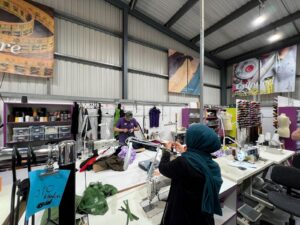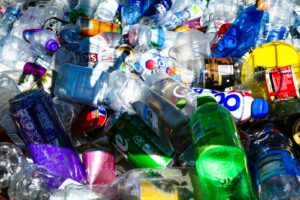Is plastic actually good for the environment?
The image of plastic has taken a kicking in 2018.
It’s estimated 10% of the 260 million tonnes of plastic the world produces each year ends up in the oceans, with the shocking scenes from the BBC’s Blue Planet 2 now firmly implanted in the minds of consumers.
But is plastic as bad for the environment as it’s perceived in the media?
Amy Hodgetts of Omega Plastics doesn’t think so, and she argues that there are several ways it has positively impacted the planet.
Plastic then and now
Prior to the 21st century, recycling was pretty low on many people’s agendas. However, thanks to a continued push to go green, we’re now more aware of the waste we produce.
In 2001, just 12.5% of household waste in England was recycled. This figure climbed to 44.9% in 2014, and rose again to 45.2% in 2016, which is drawing closer to the EU’s target of 50% by 2020 target.
The UK’s shift towards environmentally friendly living has changed our attitudes to plastic production. Nowadays, companies actively look for recyclable plastics for their products and packaging, building an impressive corporate social responsibility to set them apart from their competitors. According to the British Plastics Federation, 32% of plastic is recycled and 70% is recovered.
In the past, only certain types of plastics have been recycled. Now, as technology develops, recyclable plastics can be created, which serve the same purpose, but are more environmentally friendly.
Overall, a combination of technological advancements and altered perceptions has improved the types of plastics we’re creating and how we deal with end-of-life waste. In short, the impact has been reduced — plastic isn’t the same enemy as it has been in the past.
Improved plastic production
As we have already mentioned, improved plastic production methods have altered the impact creating plastic has on the environment. However, this isn’t just in terms of minimising waste.
Plastic injection moulding is a popular manufacturing method as, through using moulds, multiple plastic products can be created with precision. The process involves specialist machinery which, because the plastic needs to be melted, can consume a lot of energy. However, over the past 10 years, the machines have become more refined and now use between 20% and 50% less energy than they once did.
This is just one example of how plastic production processes have been improved to minimise the effect on the environment. The benefits are widespread.
Creating alternative uses
Packaging may be one of the main uses of plastic in the UK but, over time, we’re finding more and more uses for it. While many may argue that this increased plastic consumption has a negative effect on the environment, it can actually prove beneficial in the long term.
The motoring industry is a perfect example of this. Instead of using metal for the production of some parts, many car manufacturers are turning to polymers instead. Not only are these more affordable, they are lighter too, reducing the overall weight of the vehicle. This can have a positive impact on fuel efficiency and energy savings, minimising the use of fuels in the future.
The use of plastic in building materials is also beneficial. Through using plastics to create insulation and double glazing, we are able to conserve heat and prevent the non-essential warming of homes and businesses.
And of course, the nation has already begun to switch its bank notes from paper to plastic. The polymer £5 note, features Sir Winston Churchill. The polymer £10 note sports Jane Austen, and the upcoming polymer £20 set to be released in 2020 will bear the portrait of J. M. W. Turner. Of the currently released polymer notes, they are 15% smaller than their predecessors, making the production more energy efficient. They are also more environmentally friendly as they are far more durable than paper notes. According to The Carbon Trust, the polymer £5 has a 16% lower carbon footprint than its paper version.
As you can see, while some may question the eco-friendly properties of plastic, it’s clear that they also offer numerous benefits when it comes to minimising waste and further damage to the environment. With increased technological advancements, plastics are set to become even more eco-friendly.















